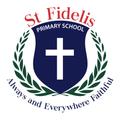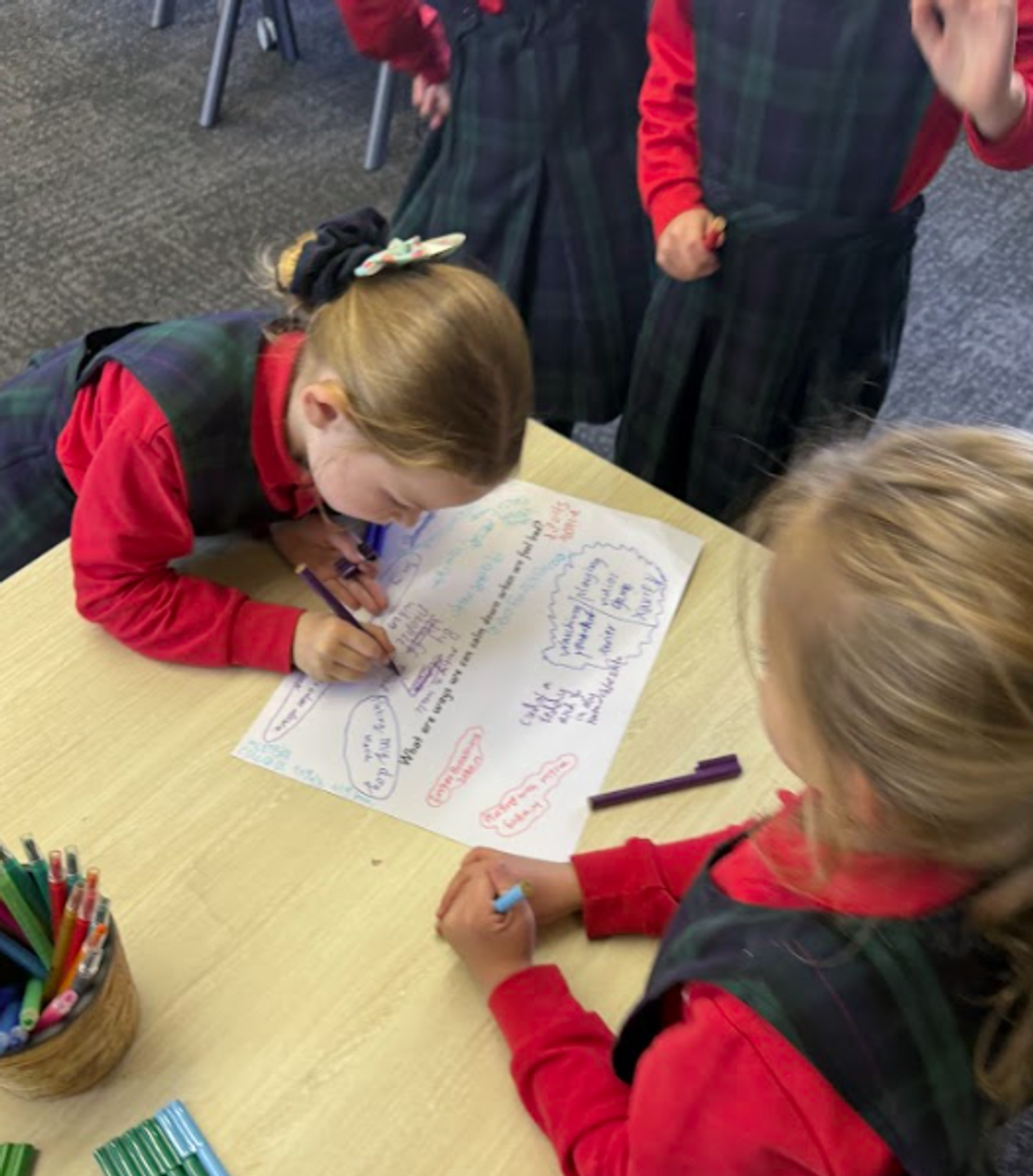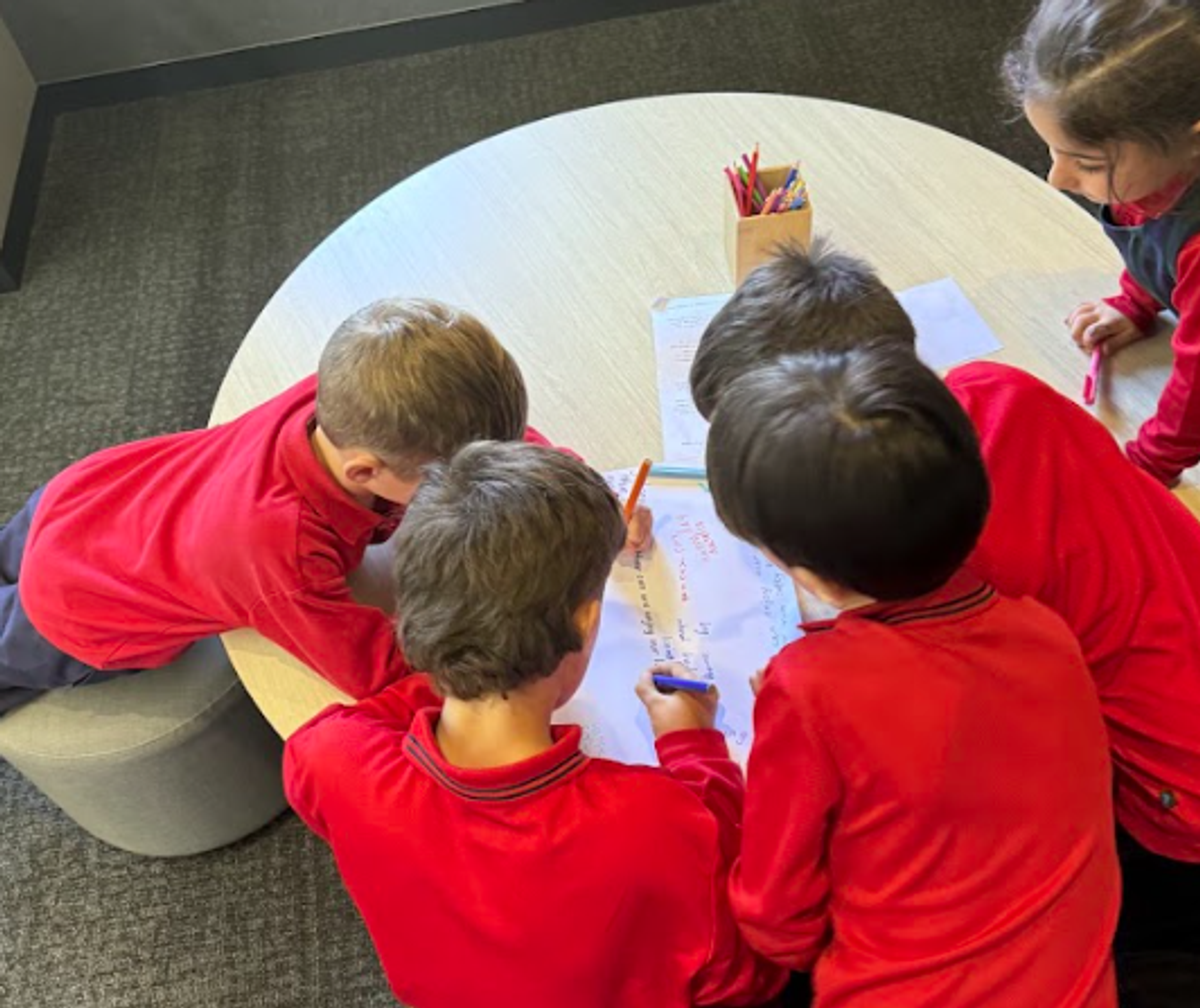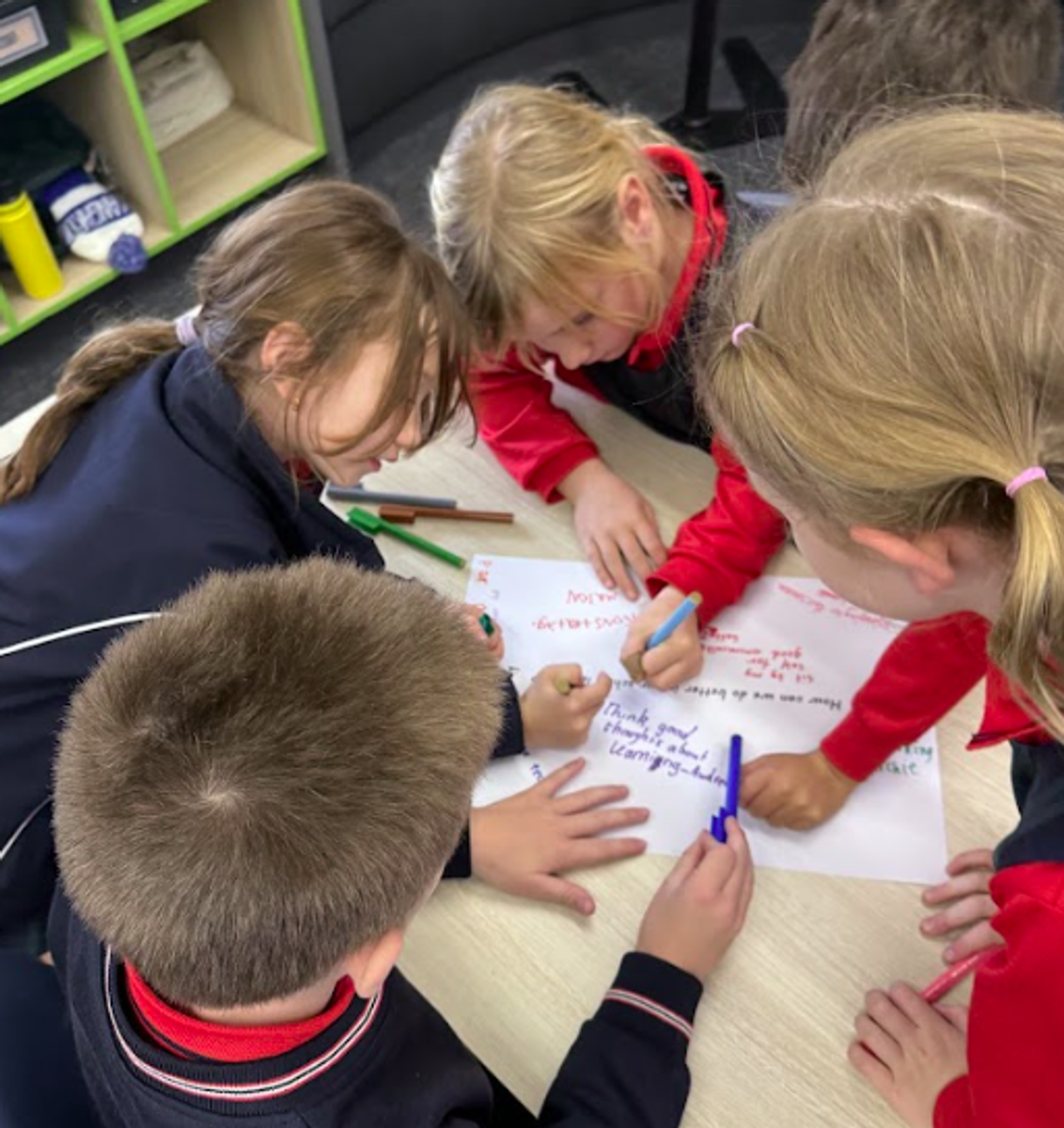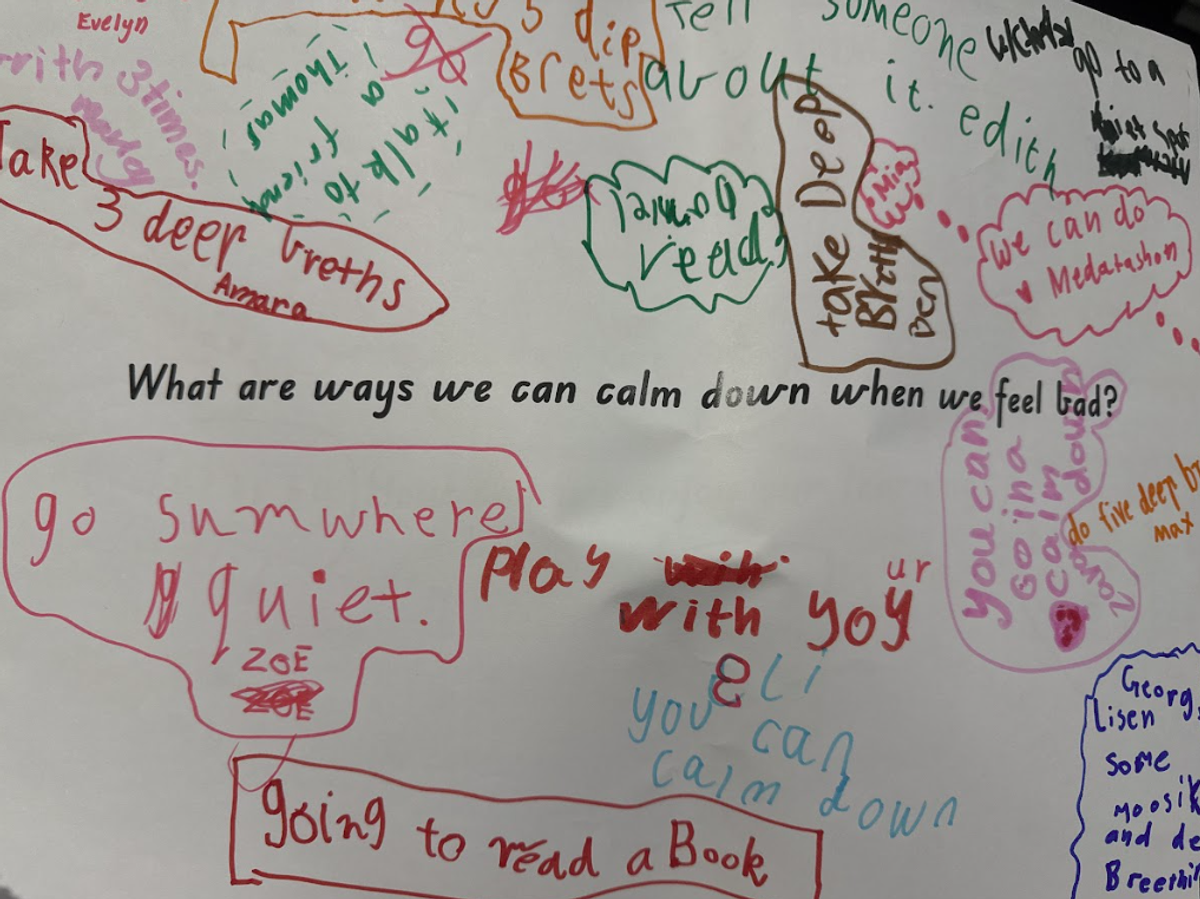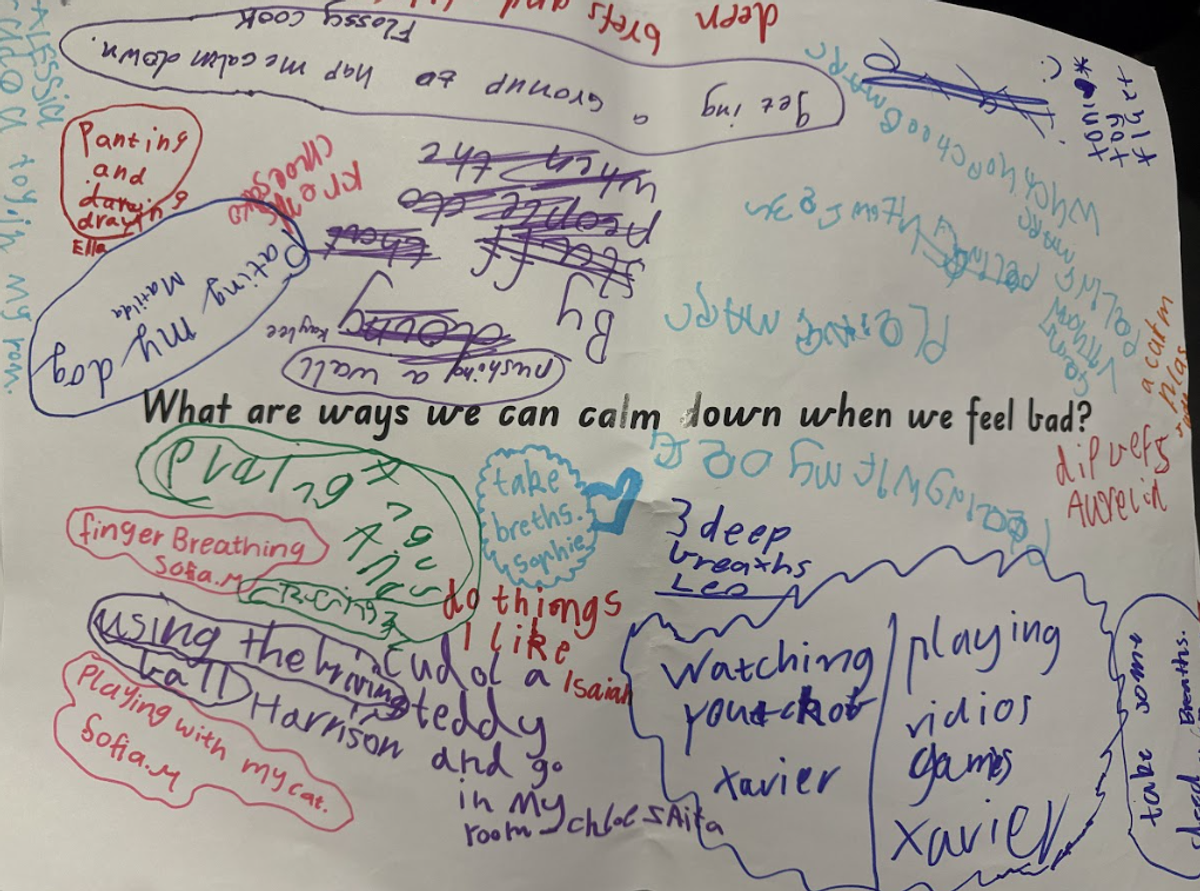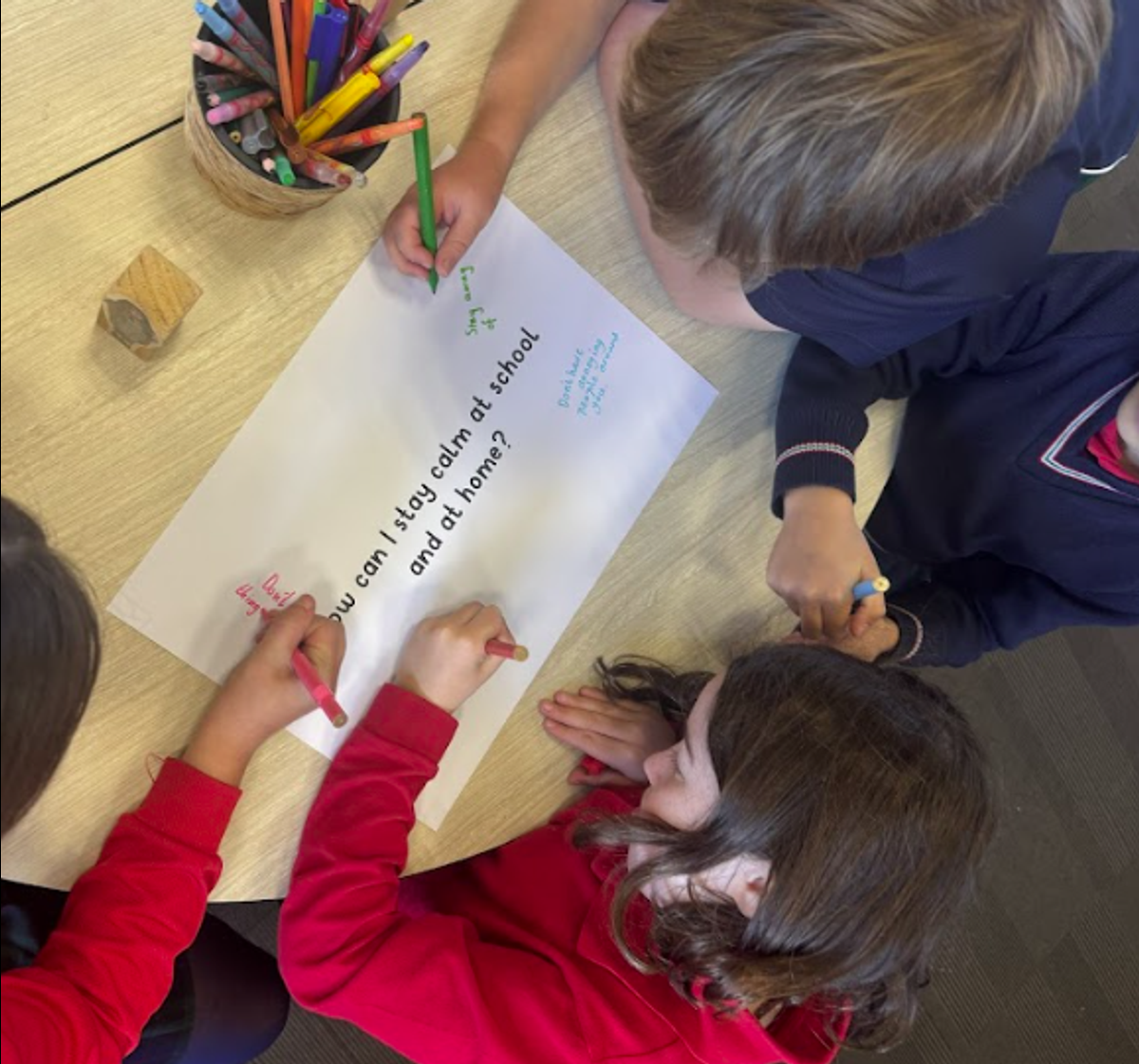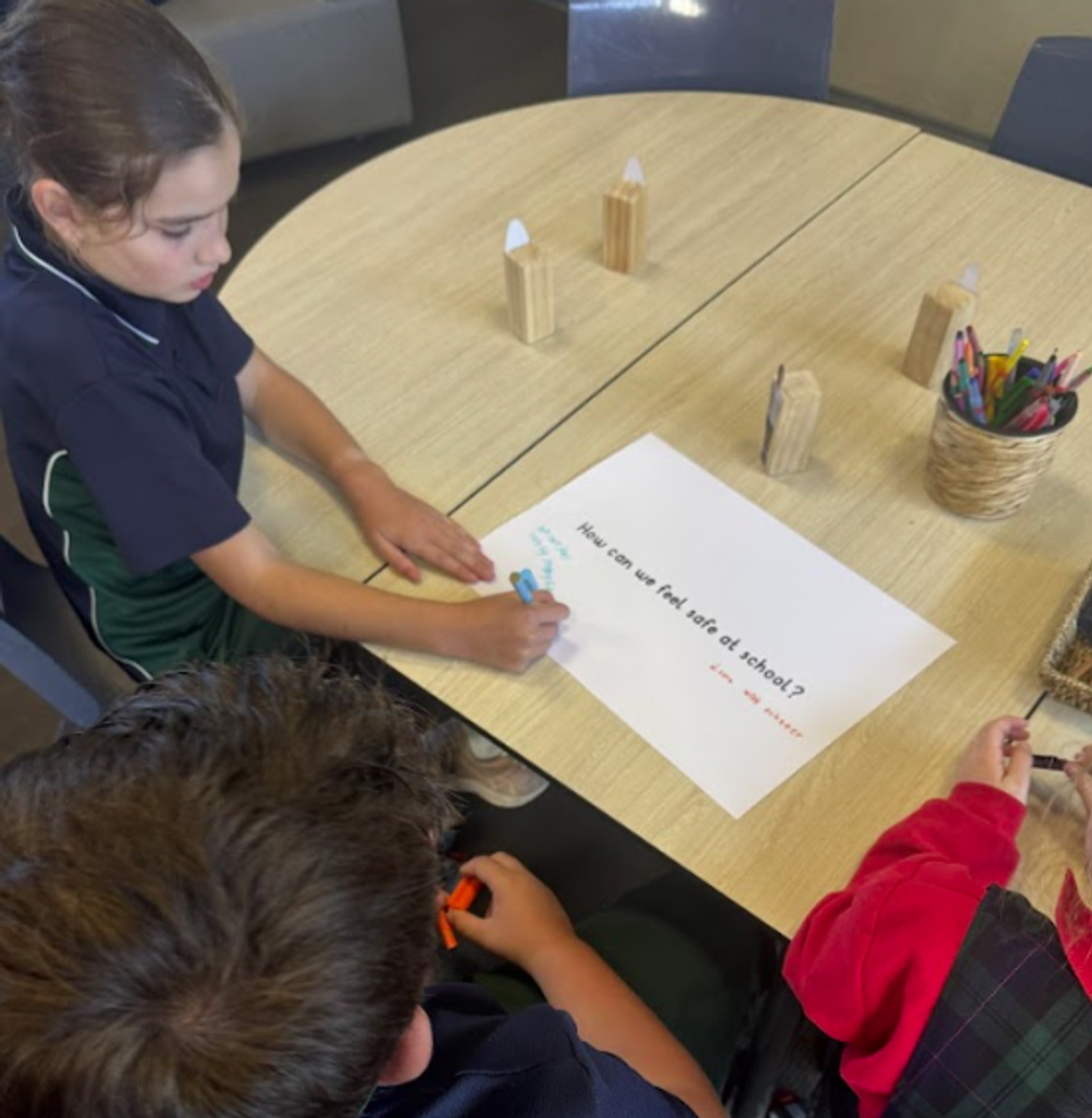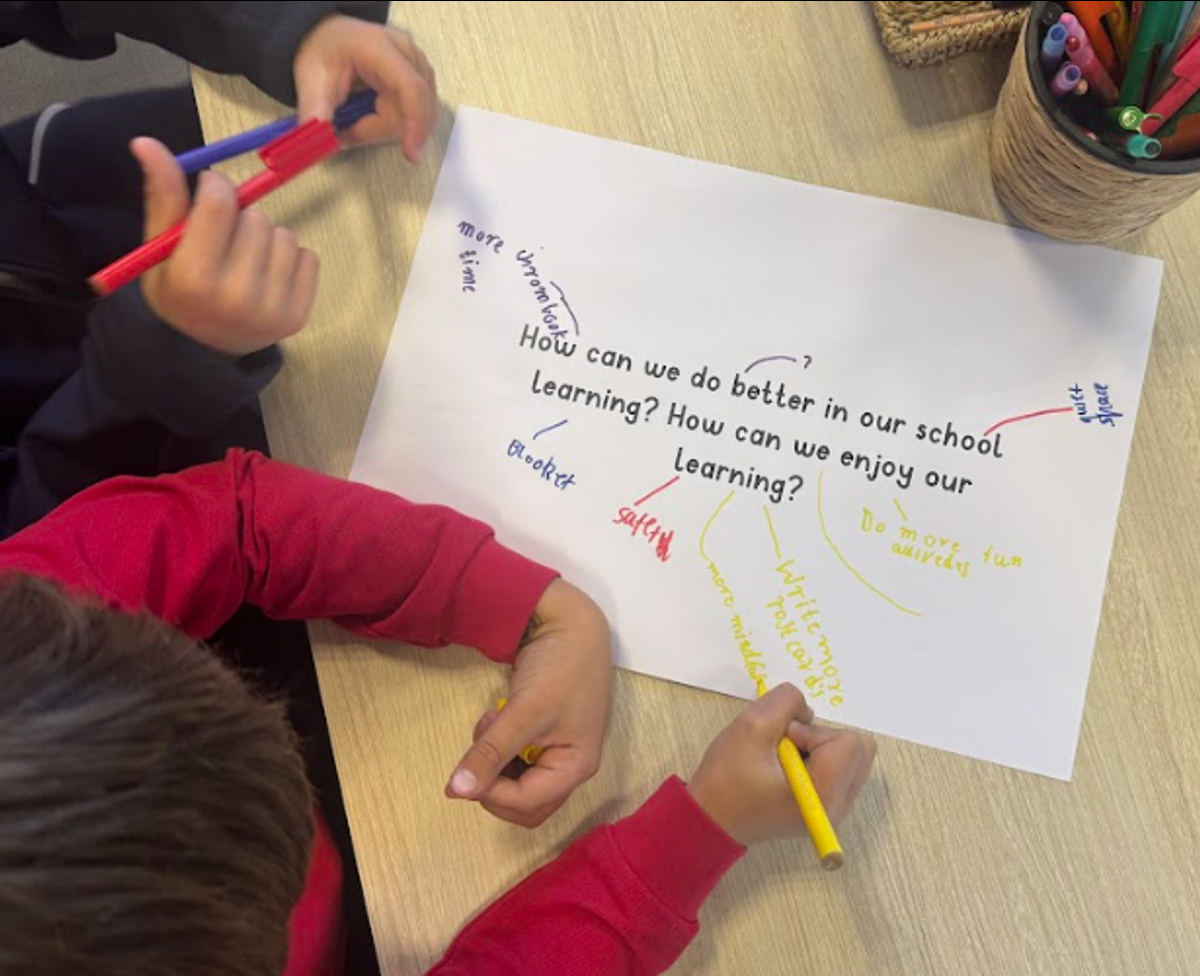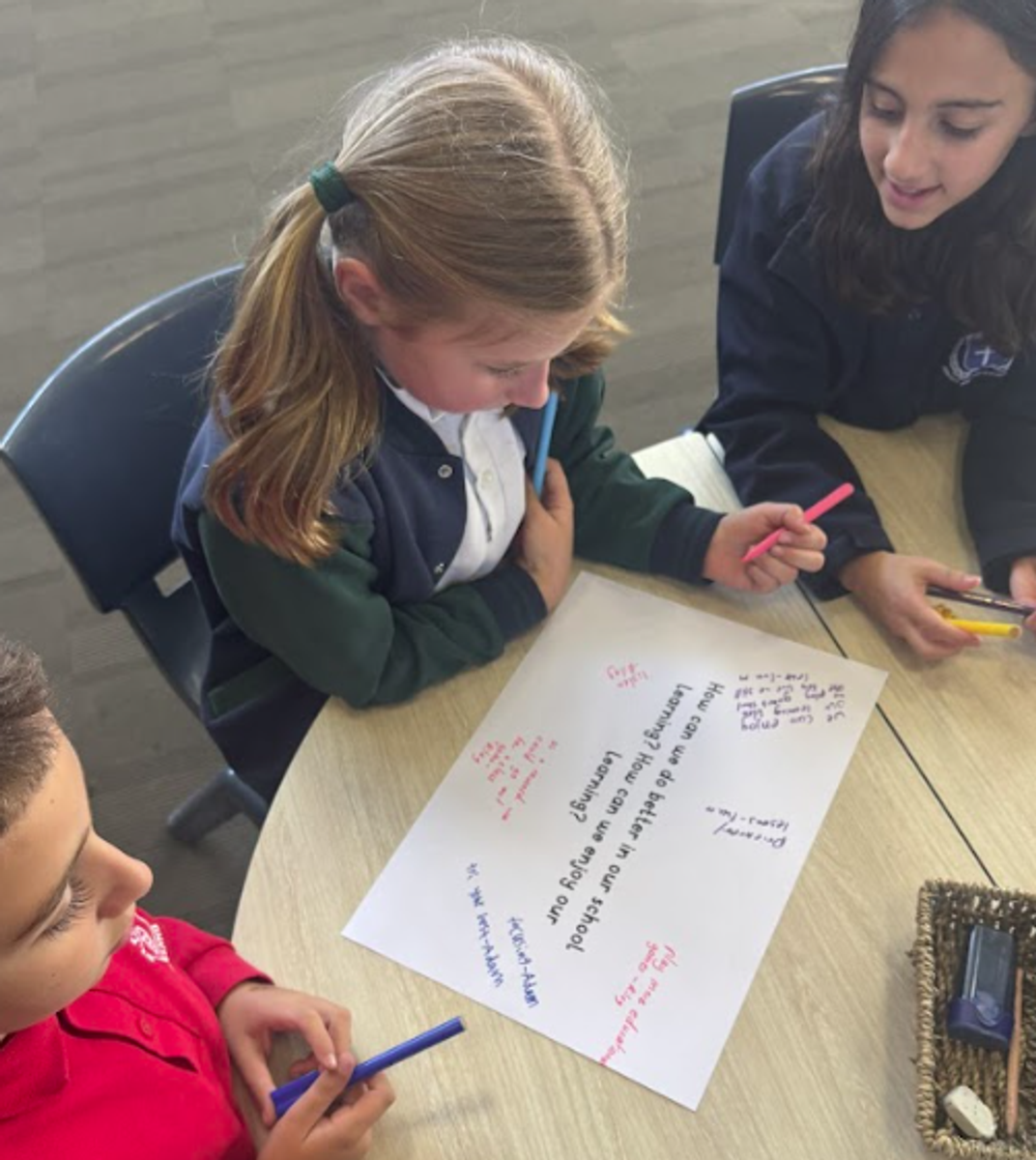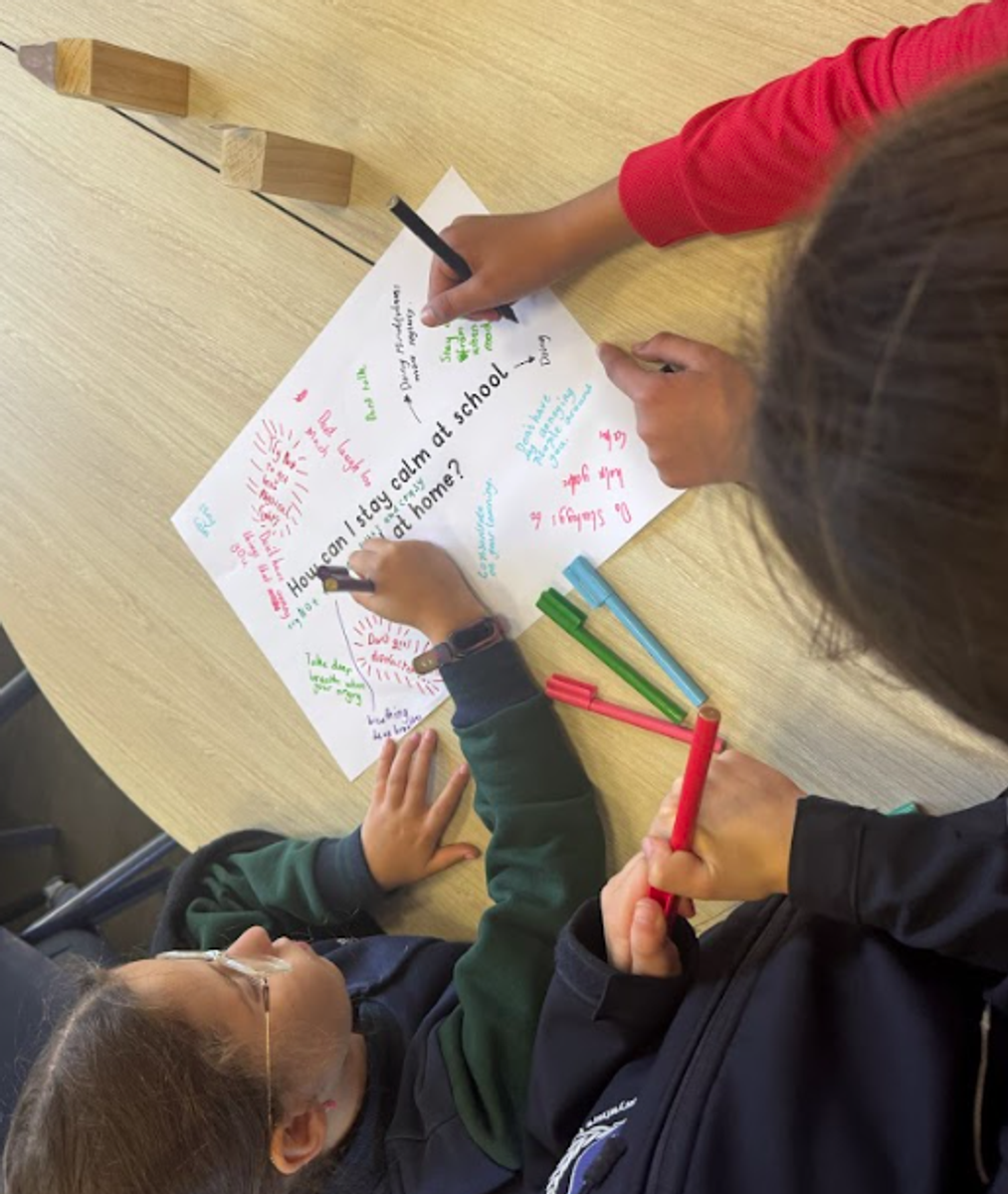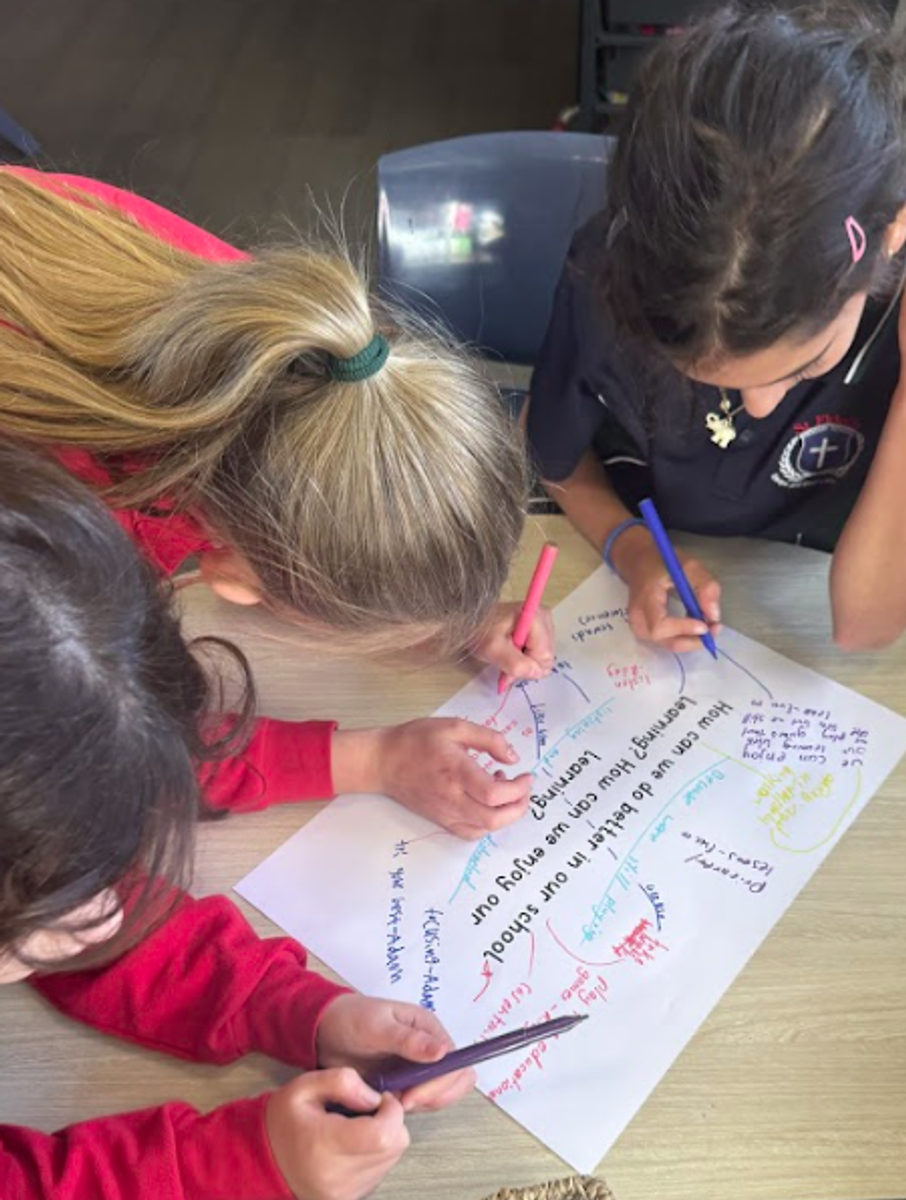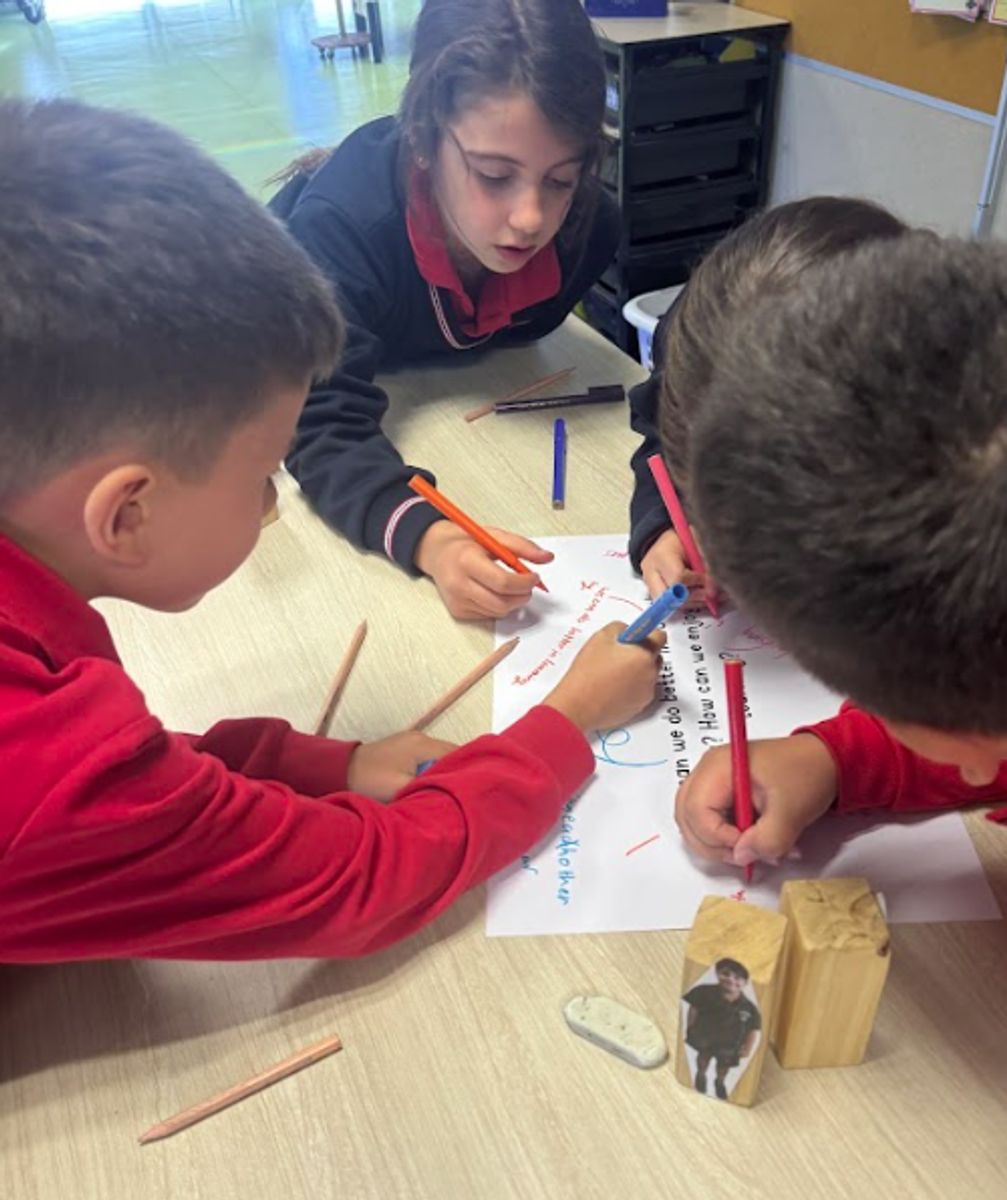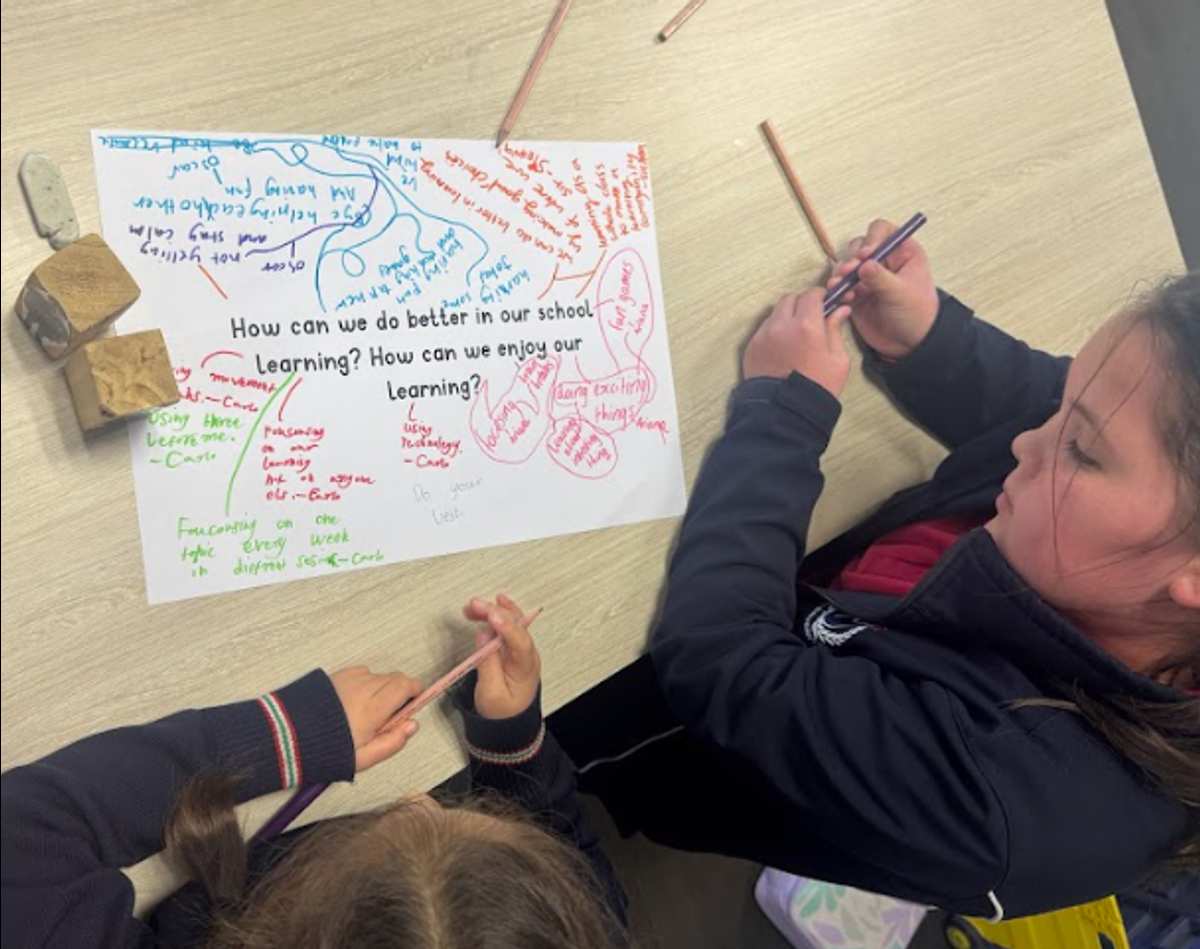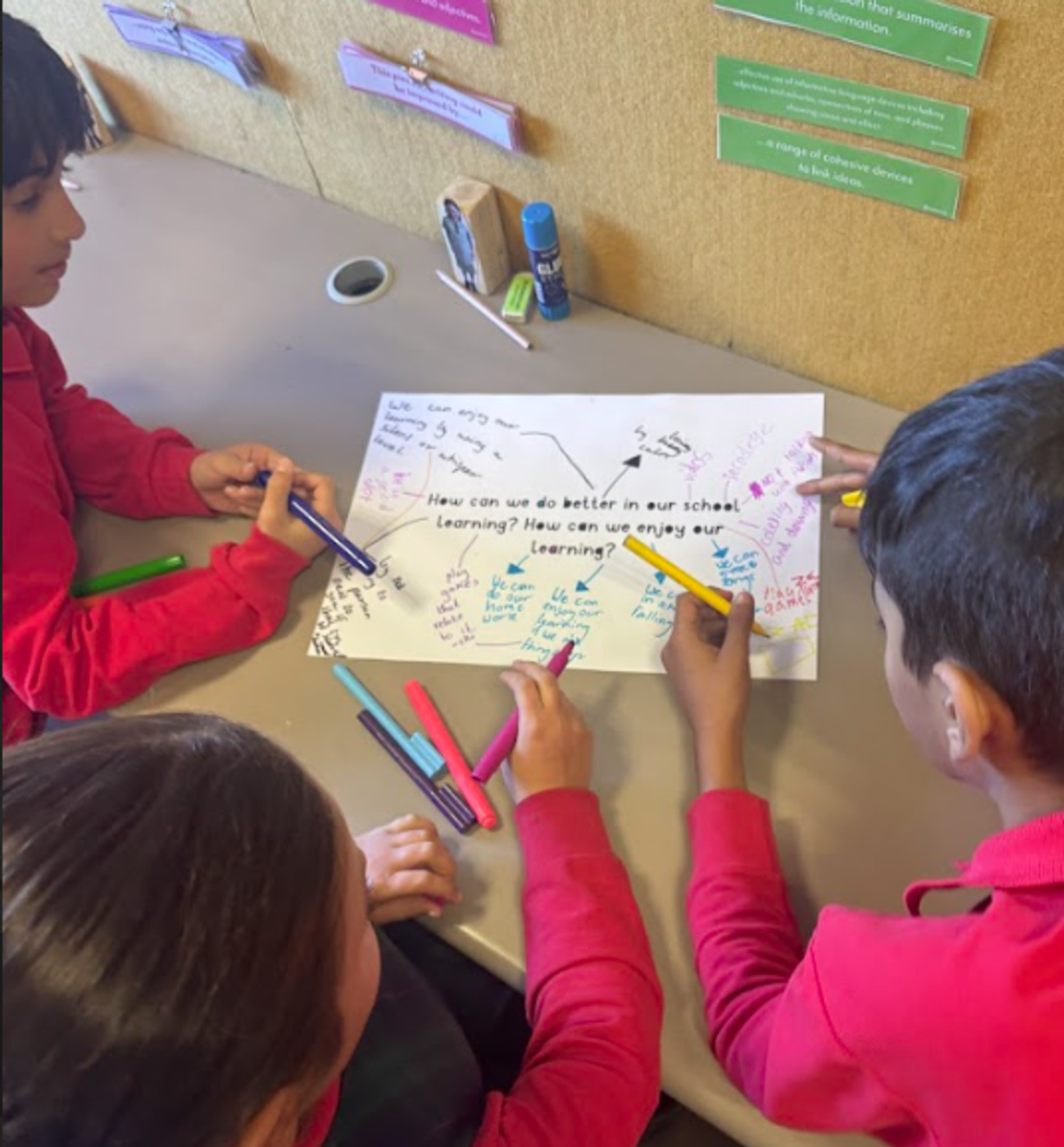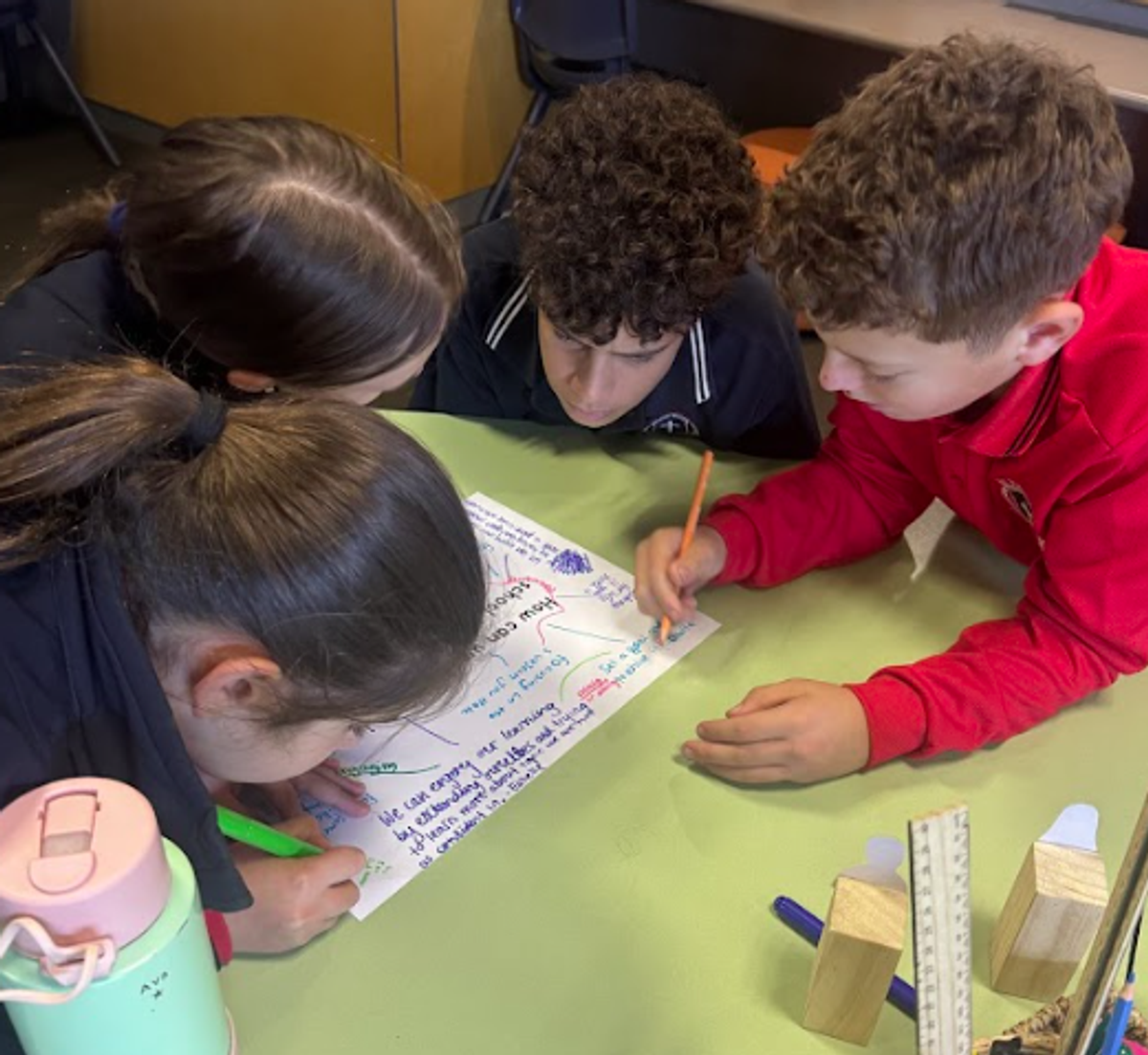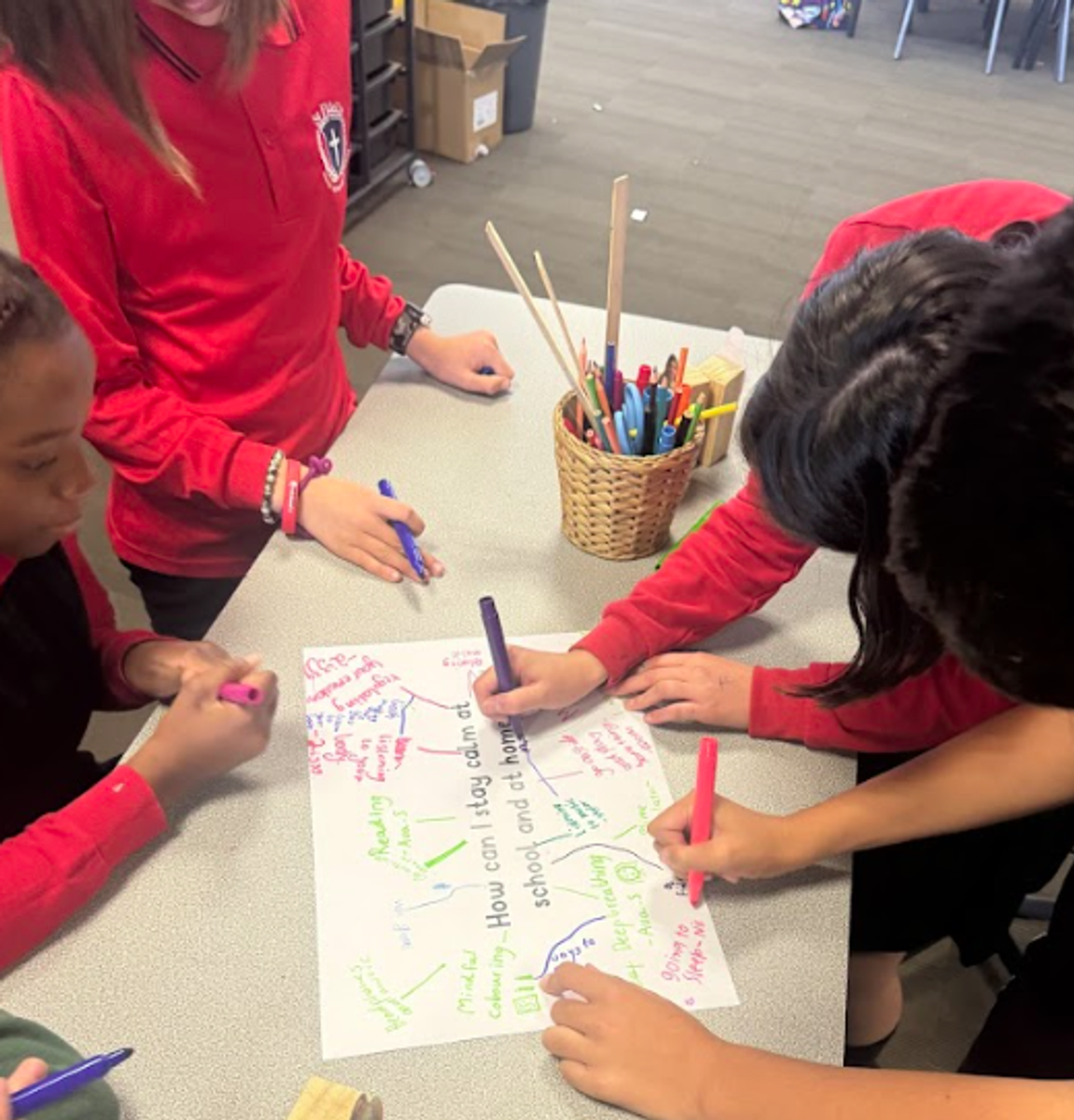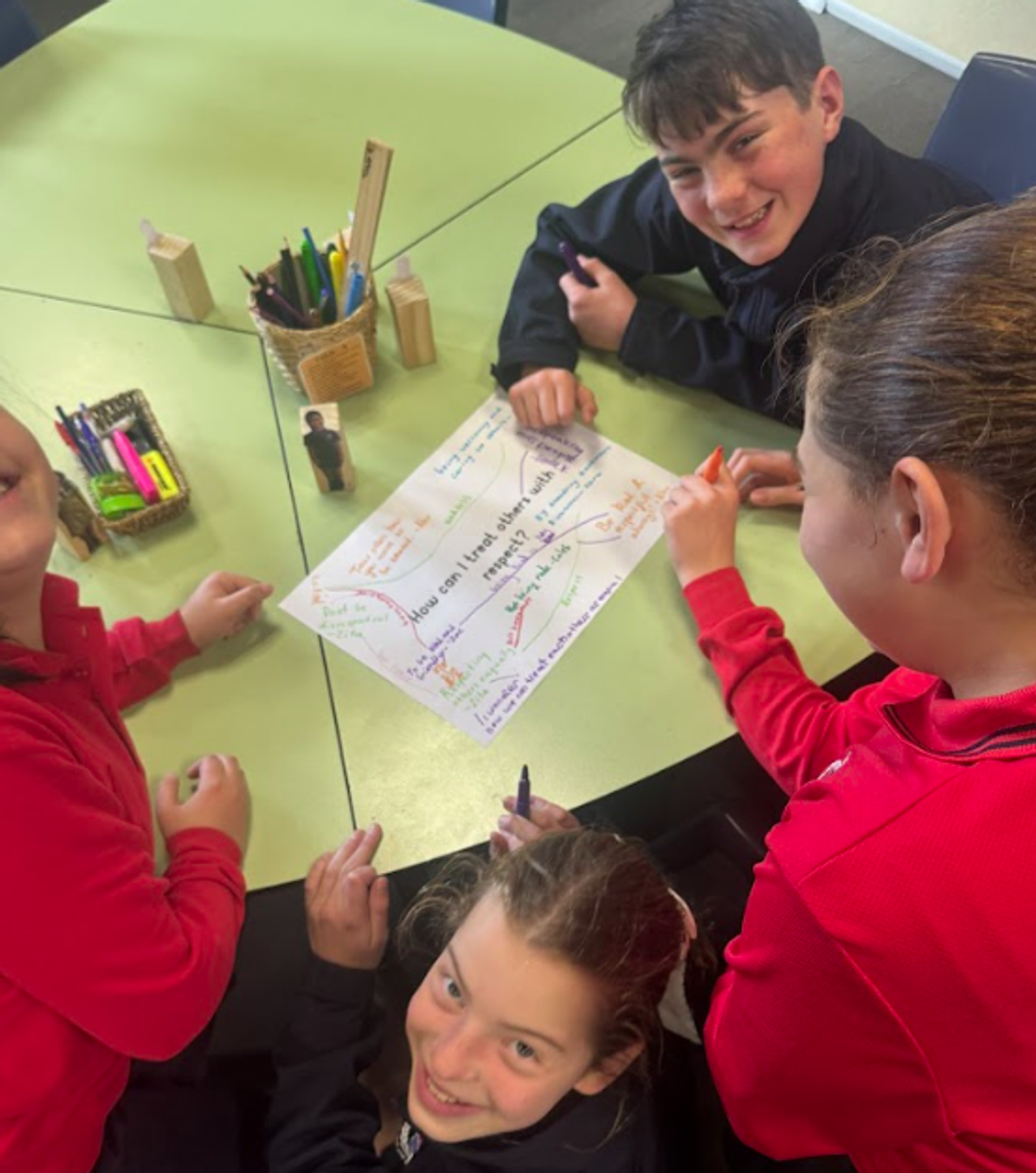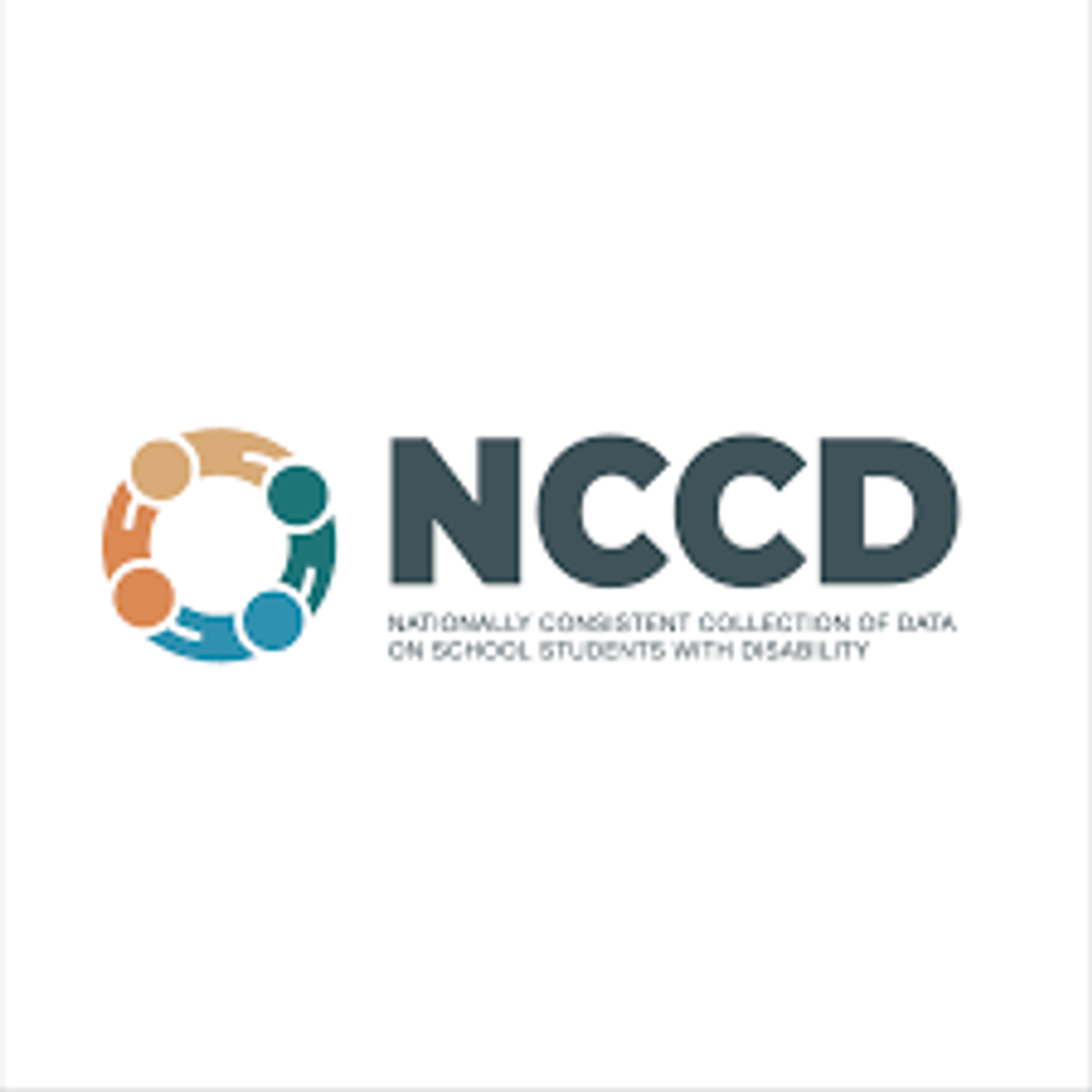Student Engagement

Welcome back,
We hope you all had a wonderful break, staying nice and warm and out of the rain!
Last term, we had some great experiences and opportunities for our Lunch Time Clubs. We engaged in Arts and Crafts, board games, colouring in, dancing and lastly cooking. A highlight of the Term for most children was our Cooking lunchtime club, where we made ANZAC Day biscuits.
We would also like to share an update on the work that has been happening since the students participated in the Youth Resilience Survey and the ACER Social and Emotional Wellbeing Survey, which provided us with valuable insights into their experiences, strengths, and areas for growth.
As part of our Wellbeing program at school, we have gone into classrooms and shared our insights from the surveys with the children. As a way of presenting and discussing the data, we engaged in the thinking routine Chalk Talk. This is where we let the chalk (textas in our case do the talking). Each cohort were presented with wonderings based on the data outcomes of their cohort's results in the surveys listed above. We will continue to target this through our Wellbeing program at school, especially throughout The Reslience Project Learning. This thinking routine helped us promote student voice in ways that we can continue to improve our school's wellbeing program.
The children collaborated in small groups. Below are some of the suggestions from the children’s chalk talk.
Year 2 | ||
Highlights | Wonderings | Suggestions from Children |
Students in Year Two report that they are happy people, feel safe and think it is important to respect people. | What are ways we can calm down when we feel bad? |
|
Year 3/4 | ||
Highlights | Wonderings | Suggestions from Children |
Students in Years Three and Four report that they are happy people, get along with their families, and think that respecting people is important. | How can I stay calm at school and at home? |
|
Year 5/6 | ||
Highlights | Wonderings | Suggestions from Children |
Students in Years Five and Six report that they are happy people, and they like helping others, and they get along with their families. | How can I treat others with respect? |
|
The suggestions have been insightful and a valuable way to inform staff on how we can further improve our learning at school. We continue to promote student voice throughout our daily practices at St Fidelis, which supports us in making informed decisions about our learning and teaching.
Thank you for reading and have a wonderful week,
Bianka Zorzut and Vicky Karalis
Wellbeing Team
National Consistent Collection of Data Happening this August
At St Fidelis, we are currently preparing for the 2025 National Consistent Collection of Data on School Students with Disability (NCCD).
On August 1st, all schools will declare the NCCD count for the 2024 to 2025 school year. Please see below for a summary of the NCCD. For more details, please visit the previous Newsletters from Terms 1 and 2.
NCCD – Nationally Consistent Collection of Data 2025
Under the Disability Discrimination Act 1992 (DDA) and the Disability Standards for Education 2005 (the Standards), Australian students with disabilities must be able to access and participate in education on the same basis as their peers. To ensure this, students with disabilities may receive adjustments to access education based on teachers' professional judgement in consultation with the student and their parents, guardians, or carers.
The Nationally Consistent Collection of Data on School Students with Disability (NCCD) gives Australian schools, parents, guardians, carers, education authorities, and the community information about the number of students with disability in schools and the adjustments they receive. The Australian Education Regulation 2013 requires all schools to report the data collected for the NCCD to the Australian Government annually.
What is the NCCD?
The NCCD is a nationwide initiative that collects information about students who require additional support at school. This support can be for physical, learning, sensory, social, or emotional needs. This support helps ensure that all students can access and participate in their learning on the same basis as their peers.
Each year, all schools are required to provide data to the Australian Government about the adjustments they make to support students with additional learning needs or a disability. As part of the process, we are required to submit the types of adjustments we make as a school, along with the areas of need for our students. Please note that we do not collect or disclose any personal or identifying information (such as student names) during this process.
Why is the NCCD important?
The NCCD helps:
- Recognise and document the support schools provide.
- Understand the needs of students with disability more clearly.
- Improve school practices and teaching approaches.
- Ensure schools meet their legal obligations under the Disability Discrimination Act 1992 and the Disability Standards for Education 2005.
How does it help our school?
Through the NCCD process, St Fidelis can:
- Better understand how to support students with disability.
- Record the adjustments and supports provided.
- Continue improving teacher practices in supporting student learning.
- Strengthen collaboration between school staff, students, and families.
If you have any questions about the NCCD, please don’t hesitate to contact us.
For more information, please see the attached PDFs.
What is the NCCD? (PDF)
